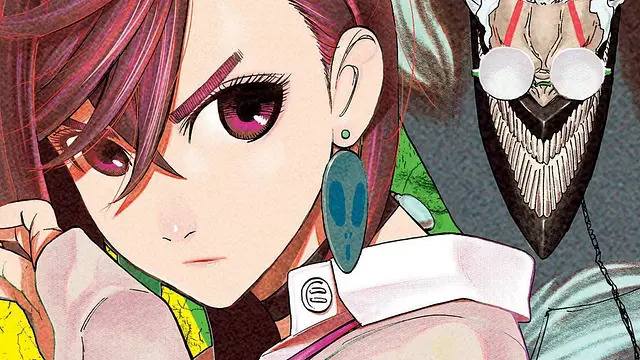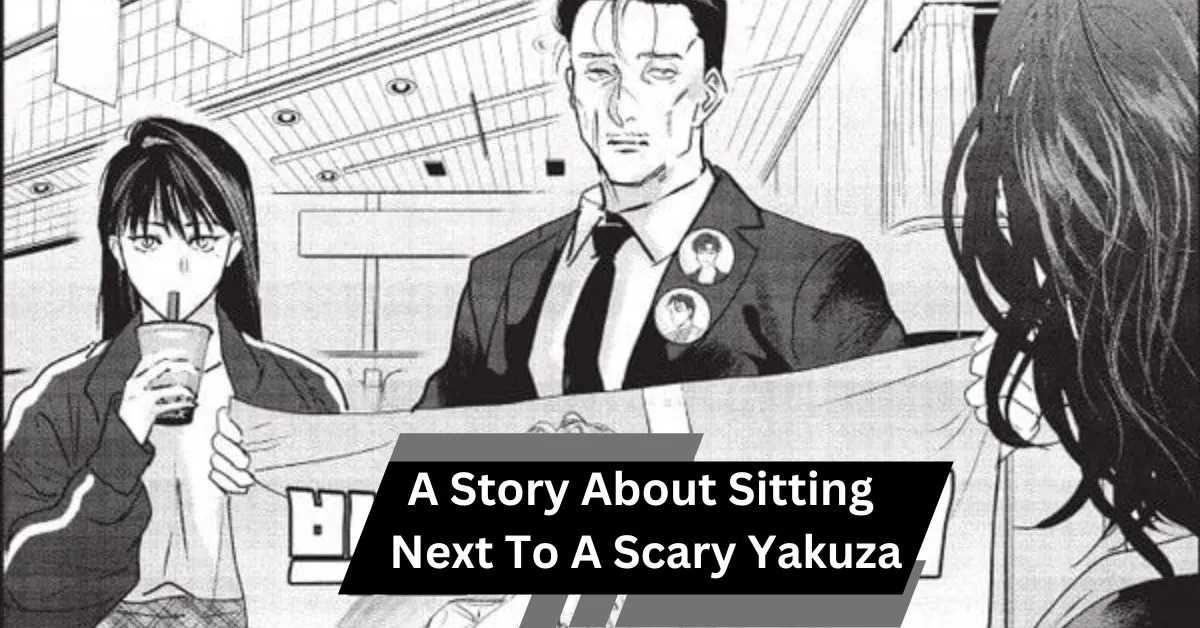Introduction:
The enigmatic allure of the Yakuza persona often conjures images of intimidation and fear. However, delving beyond the surface reveals a tapestry woven with cultural richness, human complexities, and unexpected bonds.
In this exploration, we unravel the layers of stereotype, fear, and fiction to uncover the essence of humanity amidst the intimidating facade.
The Intimidating Appearance: Unveiling the Yakuza Persona

The Yakuza, with their distinctive tattoos, suits, and stoic demeanor, have long been portrayed as symbols of fear and intimidation. But what lies beneath this intimidating appearance? Beyond the myths and misconceptions, the Yakuza embody a complex subculture steeped in tradition, honor, and loyalty.
Originating in the turbulent years following World War II, the Yakuza emerged as a formidable force in Japanese society, operating in the shadows of legality while exerting significant influence over various aspects of life.
While their presence may evoke apprehension, it is essential to recognize the intricacies of their culture and the individuals who inhabit it. The Yakuza code, or “ninkyo dantai,” emphasizes loyalty, duty, and self-sacrifice, reflecting a deep-rooted sense of honor that permeates every aspect of their existence.
Lessons in Stereotyping: Looking Beyond the Surface
Stereotypes often cloud our perceptions, obscuring the humanity behind the facade. By examining the roots of stereotype and challenging preconceived notions, we can uncover the nuanced realities of the Yakuza and dismantle the barriers that divide us.
The media portrayal of the Yakuza has perpetuated stereotypes that paint them as ruthless criminals devoid of compassion or morality. However, such depictions fail to capture the complexities of their world, where notions of honor and loyalty hold sway.
By engaging in meaningful dialogue and seeking to understand the motivations behind their actions, we can move beyond stereotype to appreciate the individuals behind the facade.
Also read: Retroya – All the Essential Information You Need to Understand!
What Makes a Scary Story Scary: The Unpredictable Realities of Life
Scary stories thrive on the unknown, tapping into our deepest fears and uncertainties. Yet, the most terrifying tales are often grounded in the unpredictable realities of life. In exploring the allure of Yakuza-themed horror, we confront our own fears and confront the complexities of the human experience.
The Yakuza, with their aura of mystery and danger, have long captivated the imaginations of storytellers and audiences alike. From the shadowy alleyways of Tokyo to the neon-lit streets of Osaka, Yakuza-themed narratives transport us to a world where danger lurks around every corner and alliances are forged in blood.
However, beneath the surface-level thrills lies a deeper exploration of the human condition, where themes of power, betrayal, and redemption intertwine to create narratives that resonate on a visceral level.
Unveiling the Layers: A Deeper Dive into the Yakuza Encounter
Beyond the surface-level portrayals, the Yakuza offer a window into a world shrouded in mystery and intrigue. By peeling back the layers of myth and misconception, we gain a deeper understanding of the forces that shape the Yakuza persona and the individuals behind it.
Contrary to popular belief, the Yakuza operate within a rigid hierarchy governed by strict codes of conduct and honor. While their activities may blur the lines between legality and illegality, their sense of duty and loyalty to their organization remains unwavering.
However, this adherence to tradition is not without its consequences, as the Yakuza grapple with internal power struggles and external pressure from law enforcement and rival factions. By delving into the intricacies of their world, we gain insight into the motivations driving their actions and the challenges they face in navigating a society that often views them with suspicion and fear.
The Intersection of Fiction and Reality: A Scary Yakuza Manga Come to Life

In the realm of fiction, the Yakuza often serve as larger-than-life antagonists, embodying our deepest fears and fantasies. Yet, the line between fiction and reality blurs as we explore the real-life impact of Yakuza-themed media and its portrayal of Japanese culture.
Manga and anime have long been fertile ground for exploring the darker aspects of society, with Yakuza-themed titles captivating audiences with their blend of action, drama, and suspense. From the gritty realism of “Gangsta” to the fantastical world of “Black Lagoon,” Yakuza-themed manga offer a glimpse into a world where morality is fluid and alliances are forged in the crucible of violence. However, the popularity of these titles has also sparked debate about their portrayal of Japanese culture and its impact on perceptions of the Yakuza.
While some argue that they perpetuate negative stereotypes and glorify criminal behavior, others see them as a reflection of societal anxieties and a means of exploring complex themes in a fictional context.
Cultural Appreciation Amidst Fear: A Passion for Tradition
Amidst the fear and fascination surrounding the Yakuza, there exists a profound appreciation for Japanese culture and tradition. By embracing cultural diversity and engaging in meaningful dialogue, we can celebrate the rich tapestry of human experience.
The Yakuza’s influence extends beyond the realm of organized crime, permeating various aspects of Japanese culture, from literature and film to fashion and cuisine. While their activities may be controversial, their commitment to tradition and honor commands respect and admiration. By acknowledging the complexities of their world and the challenges they face, we can foster a greater understanding and appreciation for the cultural heritage they represent.
Also read: 10Desires.Org Health – Your Trusted Companion on the Path to Better Health!
Breaking the Chains of Fear: A Lesson in Humanity
Fear thrives in the shadows of ignorance and misunderstanding. By shedding light on the realities of the Yakuza experience, we break free from the chains of fear and embrace our shared humanity.
At their core, the Yakuza are not simply criminals to be feared and reviled, but individuals with hopes, dreams, and struggles like any other. By engaging with their stories and seeking to understand the motivations behind their actions, we can bridge the divide that separates us and recognize the common humanity that unites us all.
The Uncharted Terrain of Friendship: An Unexpected Bond
In the unlikeliest of places, friendships bloom amidst the chaos and uncertainty. By exploring the unexpected bonds forged in the world of the Yakuza, we discover the transformative power of human connection.
Despite their reputation for violence and ruthlessness, the Yakuza value loyalty above all else, forging deep bonds of brotherhood that transcend the boundaries of family and society. Through acts of camaraderie and sacrifice, they demonstrate the enduring strength of human connection and the capacity for redemption in even the darkest of circumstances. By acknowledging the bonds that unite us, we can find common ground and build bridges of understanding that transcend fear and prejudice.
Reflecting on the Scary Story: A Journey of Self-Discovery

As we journey through the realms of stereotype, fear, and fiction, we are confronted with our own biases and beliefs. By reflecting on our experiences, we embark on a journey of self-discovery and growth. The Yakuza persona serves as a mirror through which we can examine our own fears, prejudices, and assumptions.
By confronting the uncomfortable truths they embody, we can gain insight into our own humanity and the ways in which we relate to others. Through introspection and empathy, we can transcend the limitations of stereotype and embrace the rich tapestry of human diversity.
FAQ’s
1. What is the Yakuza?
The Yakuza is a Japanese organized crime syndicate known for its hierarchical structure, strict codes of conduct, and involvement in various illegal activities such as gambling, drug trafficking, and extortion.
2. How do Yakuza members distinguish themselves?
Yakuza members often distinguish themselves through elaborate tattoos, traditional attire such as suits and fedoras, and a stoic demeanor reflecting their adherence to the code of honor and loyalty.
3. Are all Yakuza members involved in criminal activities?
While the Yakuza as an organization is involved in criminal activities, not all members participate directly in illegal endeavors. Some may serve in legitimate businesses or perform community-related tasks within their organization.
4. How does Yakuza culture intersect with Japanese society?
Yakuza culture intersects with Japanese society through various channels, including literature, film, fashion, and even politics. Despite being viewed with apprehension, elements of Yakuza culture have permeated mainstream Japanese culture.
5. What challenges do Yakuza face in contemporary society?
Yakuza face numerous challenges in contemporary society, including increased law enforcement scrutiny, declining membership due to stricter regulations, and shifting societal attitudes towards organized crime. These challenges have forced the Yakuza to adapt their strategies and operations to survive in an ever-changing landscape.
Conclusion
Through this exploration of the Yakuza persona, we’ve ventured beyond the intimidating facade to uncover the rich tapestry of culture, tradition, and humanity that lies beneath. By challenging stereotypes, embracing cultural appreciation, and fostering empathy, we’ve glimpsed the profound complexity of the Yakuza experience and its resonance with broader themes of human connection and understanding.
Related Post:





